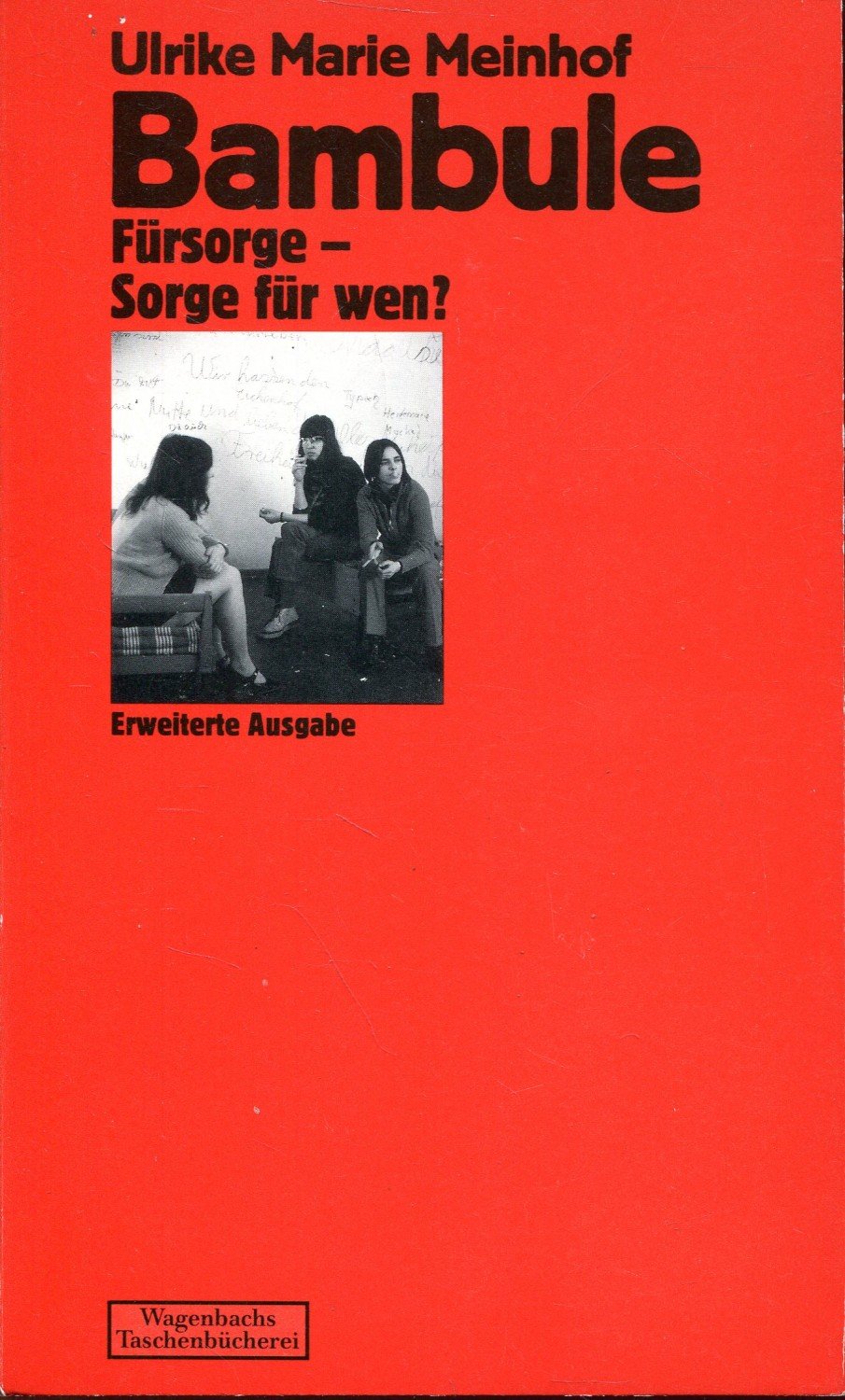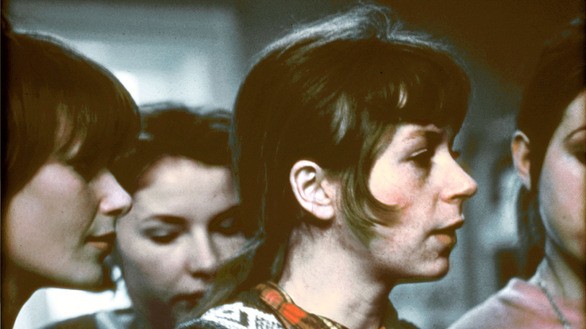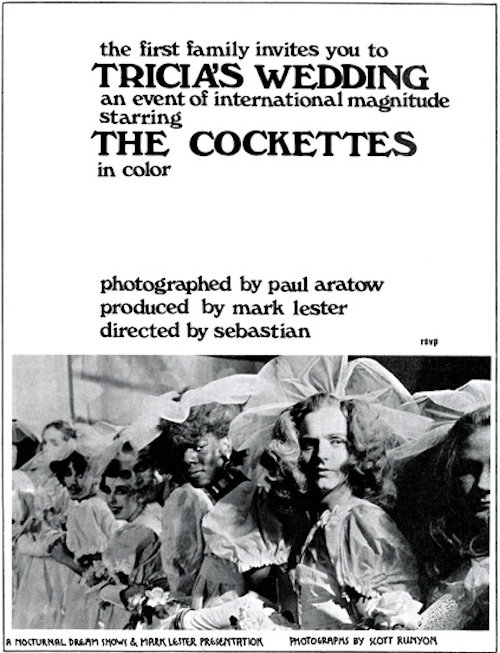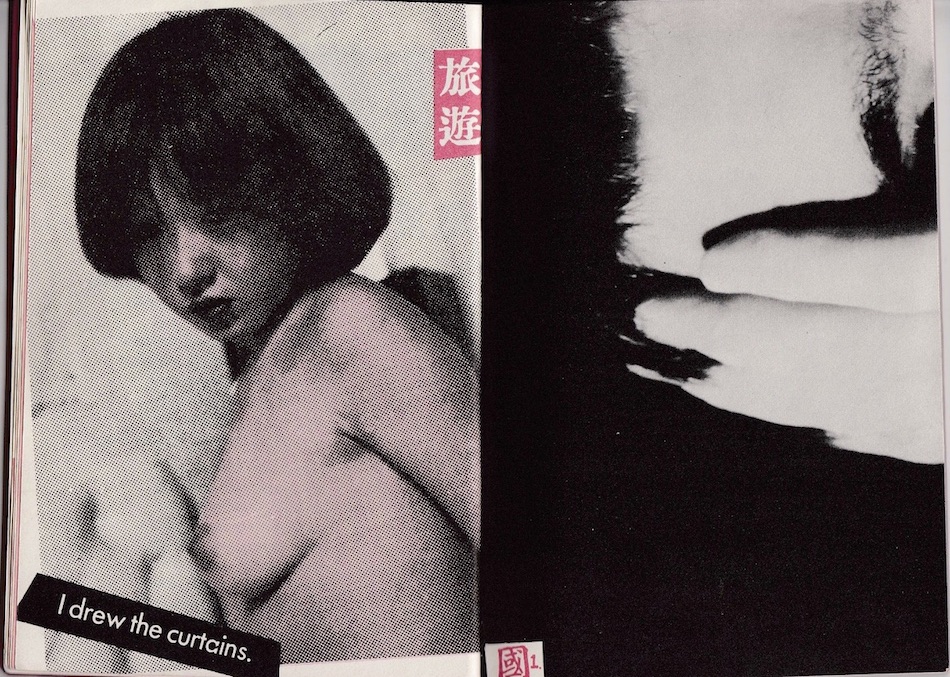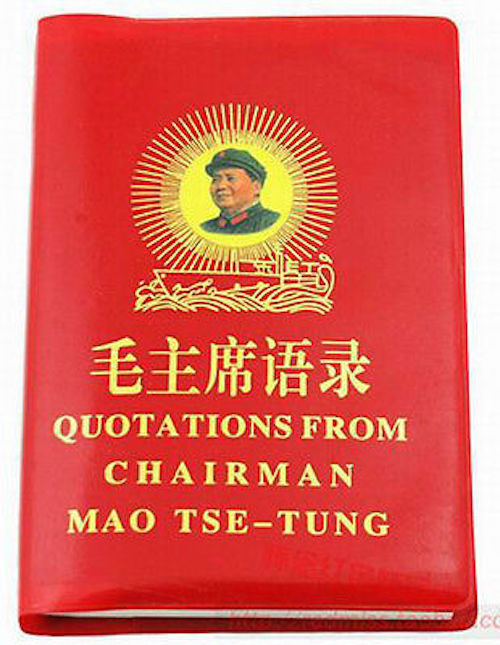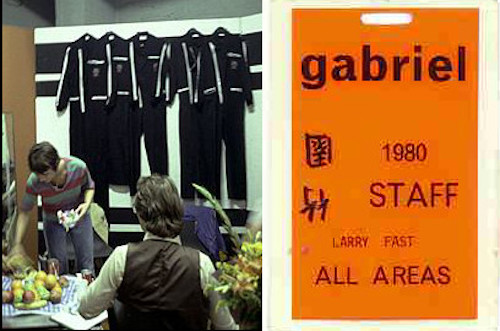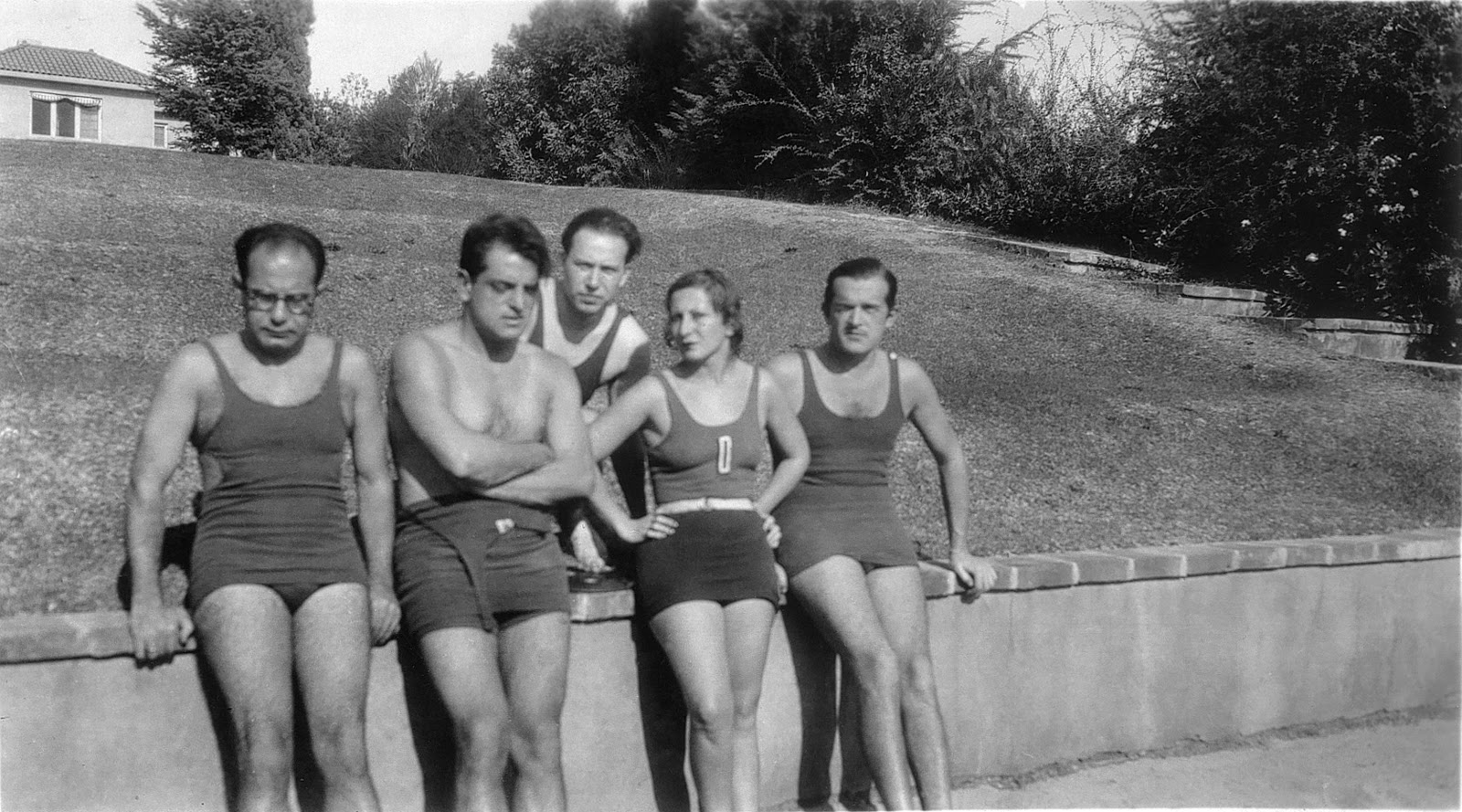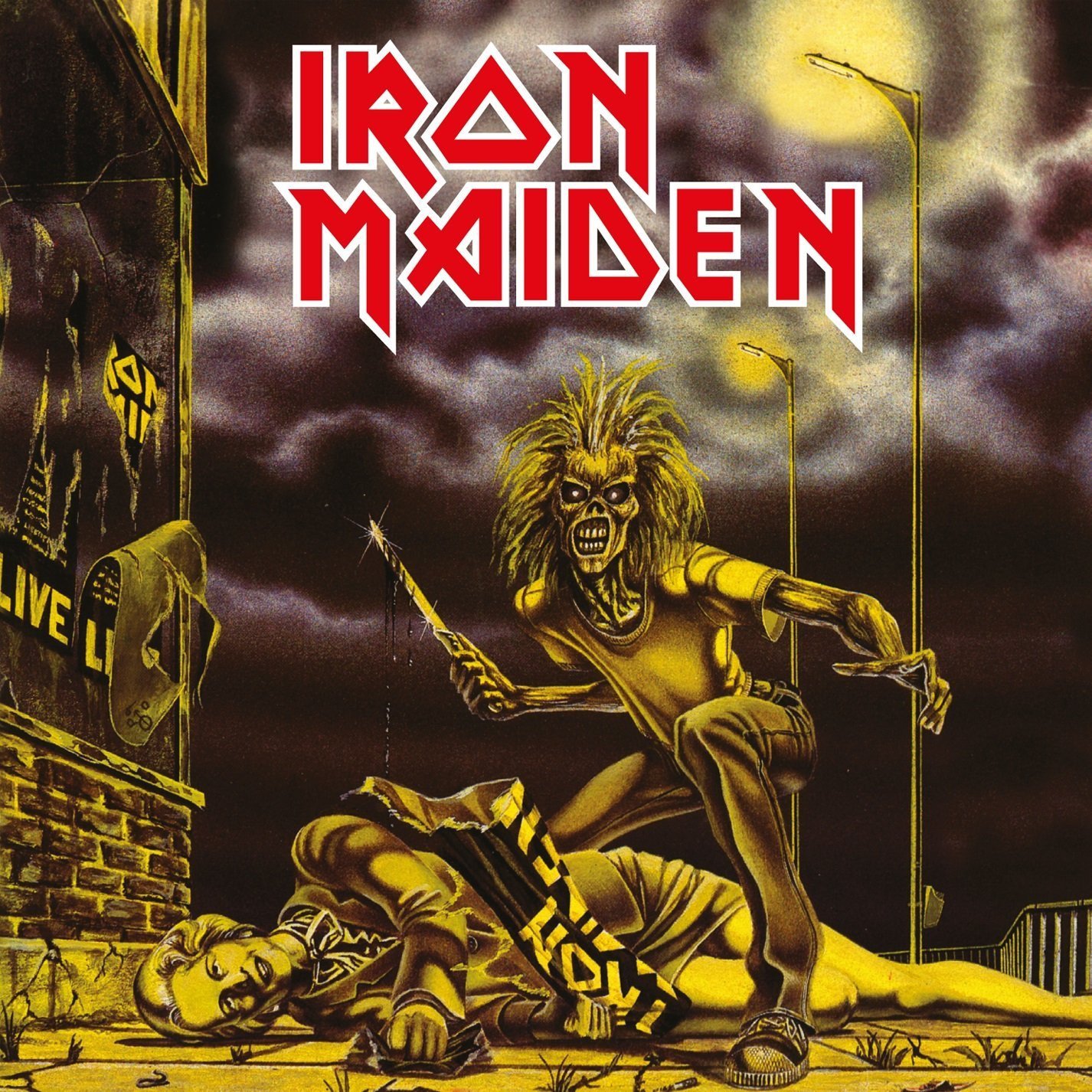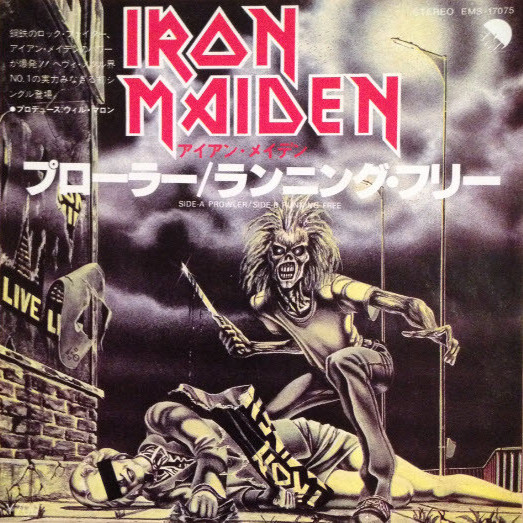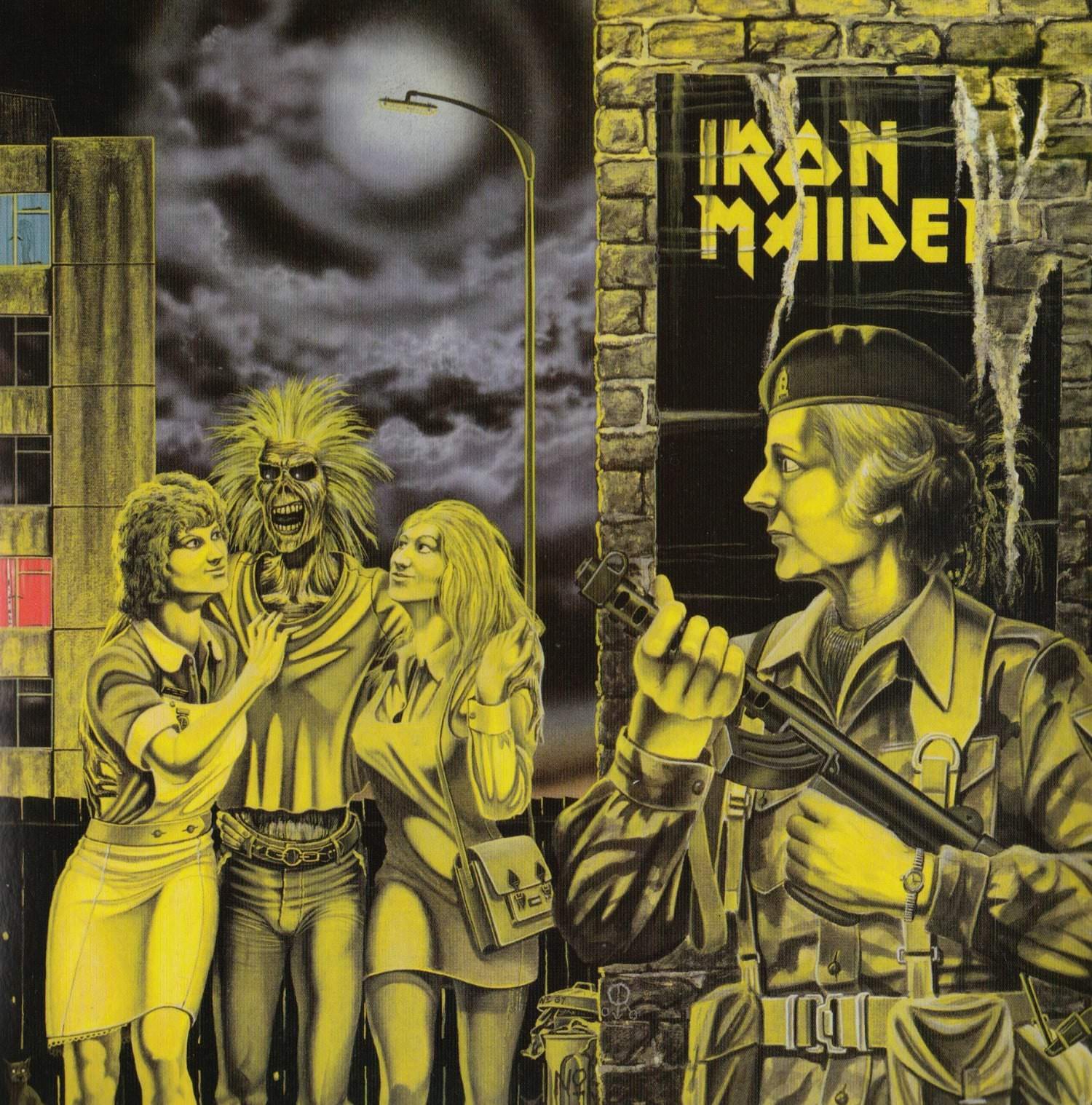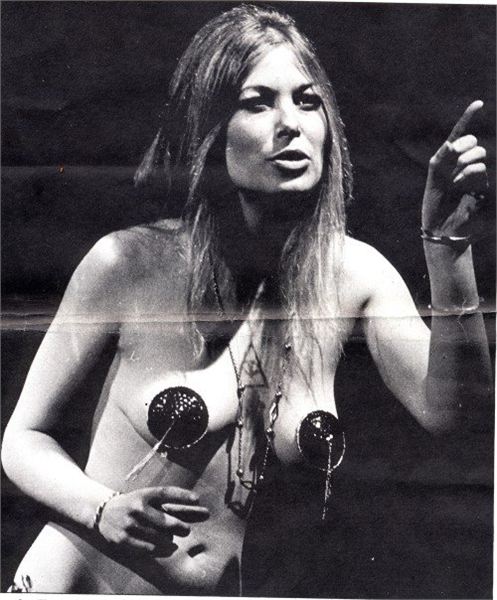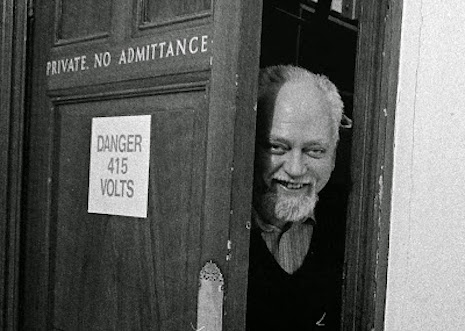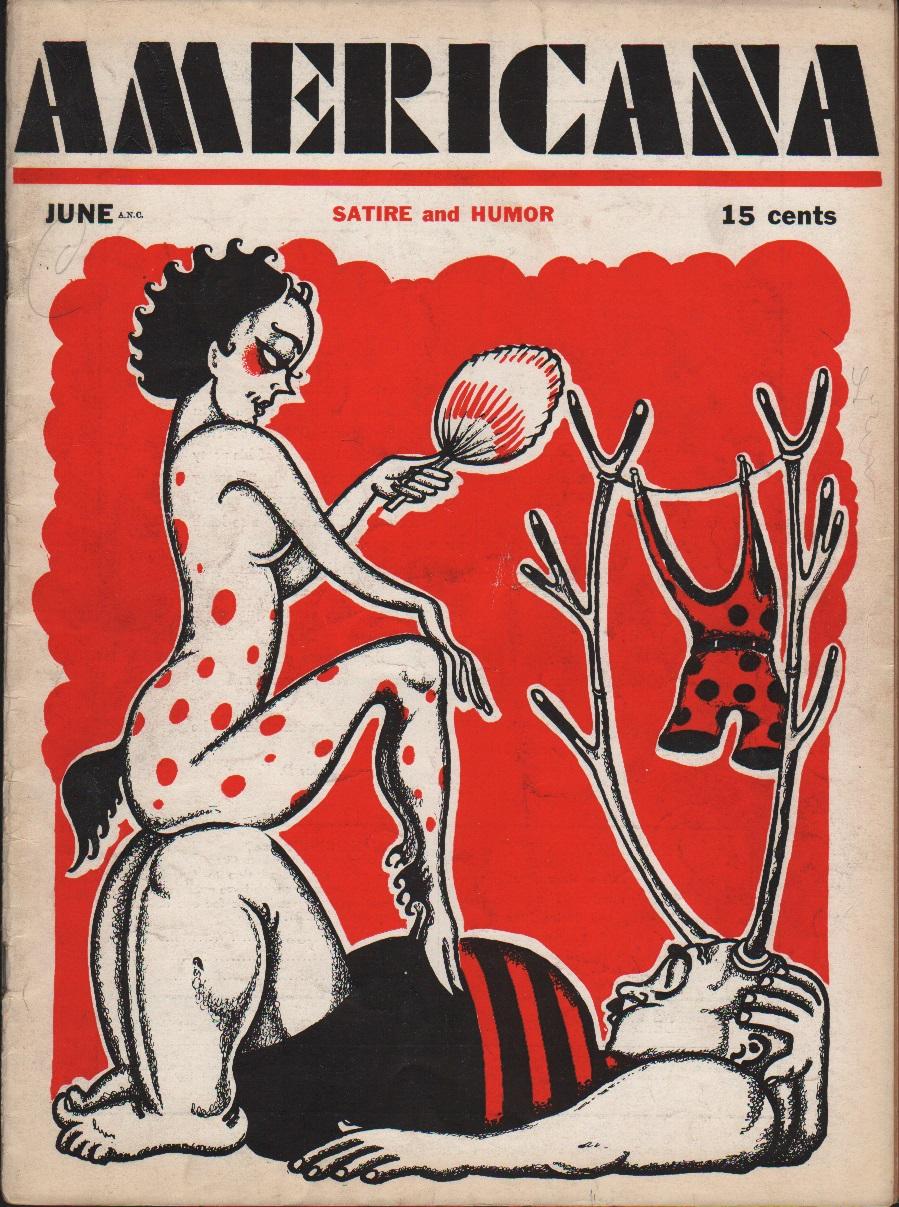
We think of the era of below-the-belt satirical media with a left-wing edge as a thing that was more or less invented in the postwar era, particularly the 1960s and 1970s, as the rise of alternative newspapers ushered in a style of humorous, scurrilous, no-holds-barred sloganeering that was unafraid to transgress the usual borders of propriety. Before that, most of the good comps come from continental Europe, especially in the welter of strident and audacious movements that sprang into existence in the first decades of the 20th century, including surrealism, dada, and expressionism.
Not coincidentally, George Grosz, one of the leading lights of expressionism after World War I, was involved with a genuinely bracing and angry left-wing political magazine in the unforgiving terrain of the U.S.A. Its name was Americana, its editor-in-chief and founder was a colorful young man named Alexander King, and a host of publications such as The East Village Other, The Black Panther, The Berkeley Barb, and The Realist, whether they knew it or not, all owed Americana a great debt.
The imagery of Americana, unlike a lot of stuff that is more than eight decades old, still resonates. The images strike one as what might happen if the original editorial minds behind The New Yorker in the 1920s and 1930s were somehow given the task of publishing the International Times of the late 1960s and early 1970s, albeit with a modernist fibrousness to the art that The New Yorker mostly lacked. (Basically this means that Americana was, unusually, willing to be ugly if it achieved other aims.)
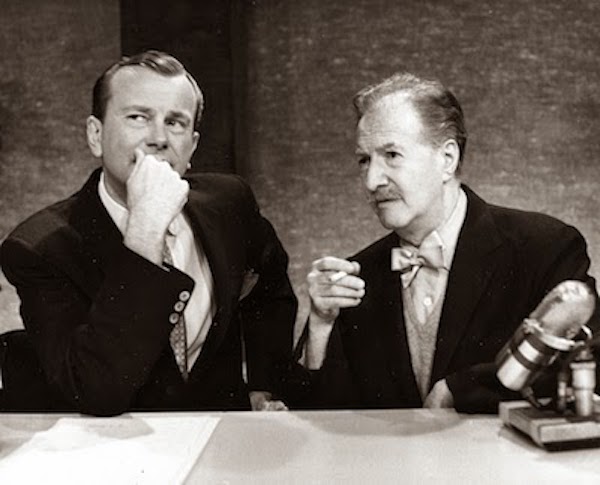
King as an older man in the 1950s, here with Jack Paar; photo taken during Paar’s stint as host of The Tonight Show
Publishing historians who track Americana cite it mainly for two things: its impressive roster of contributors and its exceedingly brief publication run. Americana existed only for 17 issues in the calendar years of 1932 and 1933, a moment when America was obviously in the throes of a catastrophic depression. While FDR tried to save capitalism from its own successes, Americana, consistently and with great vitriol, challenged the premise that capitalism was worth saving in the first place. To give an idea of what the folks of Americana thought of the likelihood of Roosevelt solving the problems of the working class, here is what Gilbert Seldes wrote in the issue following Roosevelt’s first election:
I will suggest to the editors of Americana that they reform. No more sadism. Only pretty pictures of sweet communists welcoming Trotsky back from exile; sweet capitalists washing the feet of the ten million unemployed, and sweet editors of liberal magazines smiling broadly at love triumphant.
In his book An Autobiography Grosz reminisced about editor King and Americana:
The only person who took me as I was was my friend Alexander King, who put out America’s first and only satirical magazine, Americana, and regularly published my things. He trimmed neither my wings nor my fingernails: “Scratch their eyes out, George,” he would say to me, “the harder, the better!”
Featuring names like William Steig and James Thurber, Americana did have a fair bit of cross-pollination with the aforementioned New Yorker. (King managed to run an interview with New Yorker grandee Alexander Woollcott in which the acerbic writer allowed that the New Yorker “is got out by a shiftless reporter with the help of two country bumpkins,” the latter two being non-East-Coast-ers Harold Ross and Thurber.)
In addition, Americana published contributions by E.E. Cummings and Nathanael West. Americana’s run coincided precisely with the West’s first great productive period, during which he wrote and published A Cool Million and Miss Lonelyhearts (The Day of the Locust arrived a few years later)—it’s not too much to say that Americana was an near-perfect periodical correlative for West’s corrosive fiction, and it’s not surprising that he found a warm welcome there. Americana was also an early venue for the work of Al Hirschfeld, who later became much more renowned for sticking the word “NINA” into the whiskers of Orson Welles and the locks of Bernadette Peters.
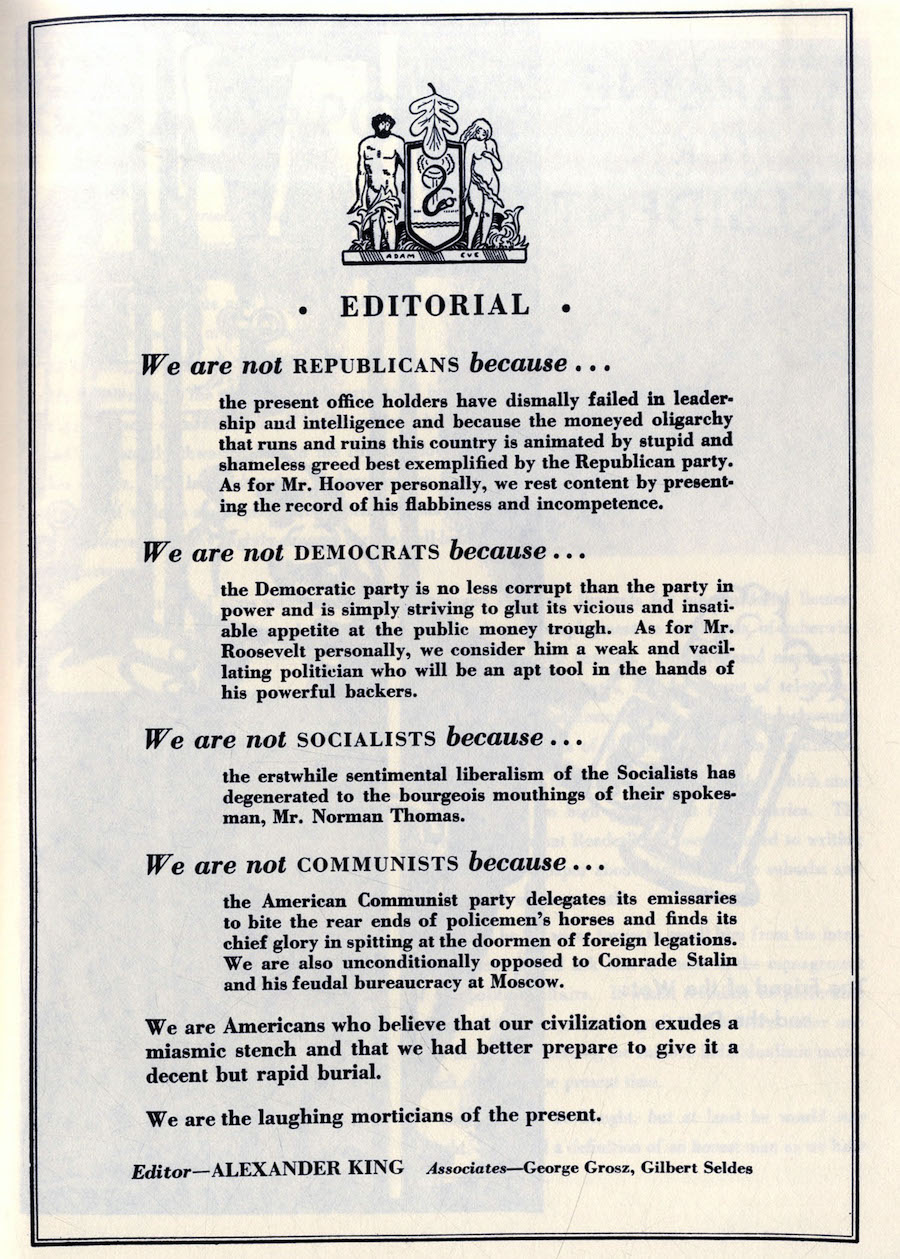
A remarkable editor’s note from Americana
Not surprisingly, King himself was from the Continent—he was born Alexander Koenig in Vienna in 1899. In his later years he became a talk-show personality and wrote several books which did very well. In its review of King’s 1960 book May This House Be Safe From Tigers, Time magazine summarized the author’s eventful life, with some affection, as follows:
an ex-illustrator, ex-cartoonist, ex-adman, ex-editor, ex-playwright, ex-dope addict. For a quarter-century he was an ex-painter, and by his own bizarre account qualifies as an ex-midwife. He is also an ex-husband to three wives and an ex-Viennese of sufficient age (60) to remember muttonchopped Emperor Franz Joseph. When doctors told him a few years ago that he might soon be an ex-patient (two strokes, serious kidney disease, peptic ulcer, high blood pressure), he sat down to tell gay stories of the life of all these earlier Kings.
It’s my impression, researching this topic, that there is just damn little out there about Americana, which is a real shame. However, the images of the publication have aged remarkably well in my estimation, still possessing the power to catch the eye and even to shock, whether it’s the casual yolking of the “modern messiahs” Stalin and Gandhi (!) or the unflinching presentation at the suffering of the destitute. Here is a representative sample of images from the magazine, but by all means there’s more here.
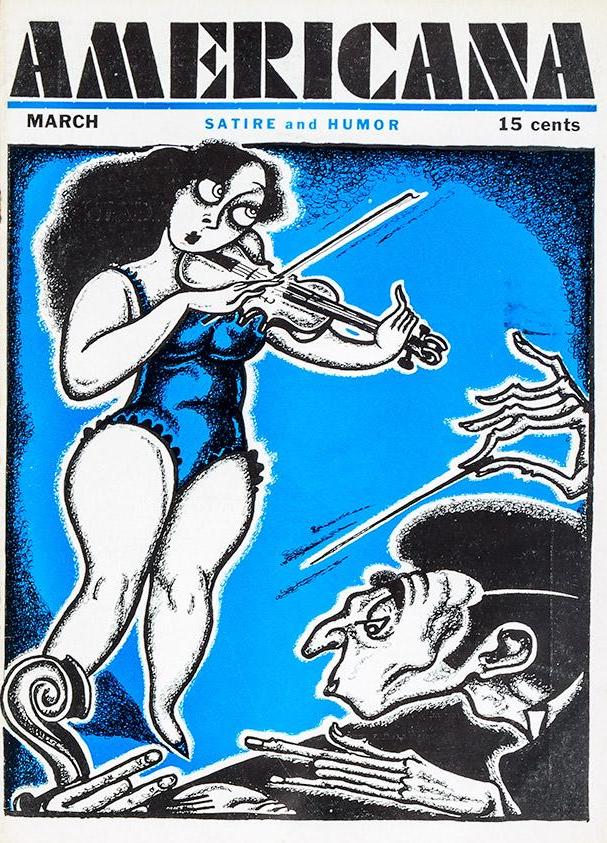
Much more after the jump…....
Posted by Martin Schneider
|
04.24.2018
10:21 am
|
